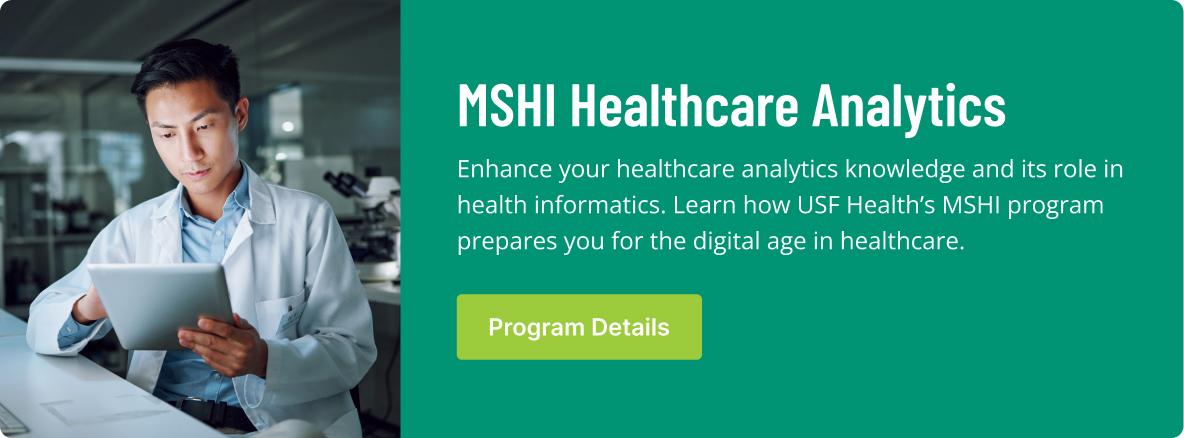Hospitals and healthcare organizations use data analytics, also referred to as healthcare analytics, to make efficient, impactful decisions to improve organizational performance and, ultimately, the quality of patient care.
What is Data Analytics?
Data analytics is the process of collecting, analyzing and interpreting data to gain insight into a situation and develop actionable organizational plans.
Organizational leaders can use data analytics to determine which departments in a hospital are in need of additional resources, restructuring or cost-cutting efforts. Specific examples include:
- Identifying trends in patient outcomes for different types of treatments.
- Assessing the efficiency of workflow processes in different departments.
- Predicting potential issues with supply or other business-related concerns.
Different scenarios require different approaches to data analytics, and there are three main types: descriptive, predictive and prescriptive analytics.
In this way, data analytics can be a powerful tool for healthcare administrators, helping them to improve the care their hospitals provide and save resources in the process.
How is Data Analytics Used in Healthcare Settings?
Healthcare organizations use data analytics to improve patient care and outcomes. They do this by collecting and analyzing data from a variety of sources, including:
- Electronic medical records (EMRs)
- Laboratory systems
- Image repositories
- Pharmacy databases
- Registries
- Claims records
For example, healthcare data analysts look at the medical records of patients with certain conditions, such as diabetes or heart disease. They can then identify patterns in the data that might explain the frequency of certain conditions and behaviors, which can help identify at-risk patients for early intervention services.
Moreover, their analyses can help develop new treatment methods or improve the effectiveness of existing ones. Healthcare data analysts may also work with other healthcare professionals to develop specific solutions for their patients’ needs, such as an online portal or app that patients can use to track their own health data.
Why is Data Analytics Important in Healthcare?
Without effective data analytics, it can be difficult for healthcare organizations to provide high-quality care. Healthcare providers need to be able to efficiently track trends in patient populations, diagnose problems quickly and effectively, and respond appropriately.
Data analytics allows healthcare organizations to identify which patients have a higher risk of getting sick or developing certain diseases for early intervention. Additionally, data analytics can help hospitals make better decisions when it comes to workflow, facility staffing and inventory management.
- Descriptive: using data to describe the current state of an organization or system.
- Predictive: using data to predict future outcomes and make decisions based on this information.
- Prescriptive: using data to determine certain courses of action, such as which drugs to prescribe or which treatments will work best for a specific patient.
Healthcare providers and administrators use all three of these data analysis sets to make important decisions regarding patient care. No one is more important than the others—all have their place in the healthcare ecosystem.
What Are the Benefits of Data Analytics?
The chief benefits of healthcare data analytics are in advancing patient care, improving the quality and efficiency of healthcare delivery and providing insight into how patients interact with their providers. Some benefits of using data analytics include improving:
- Quality of patient care by identifying and preventing medical errors across all departments, such as surgery or laboratory testing.
- Treatment outcomes by using data from electronic health records (EHRs) to determine which treatments work best for specific patients.
- Cost and revenue by streamlining inventory and staffing issues.
Healthcare Data Analytics Is Here to Stay
The benefits of using data are clear, and the technology required to collect and analyze it is improving every day. However, there are still some obstacles that prevent most providers from taking full advantage of their data resources, such as a lack of resources and staff expertise.
For professionals seeking to enter or advance in healthcare analytics, USF Health offers both an SAS Approved Graduate Certificate in Healthcare Analytics and a CAHIIM accredited MSHI Healthcare Analytics.




